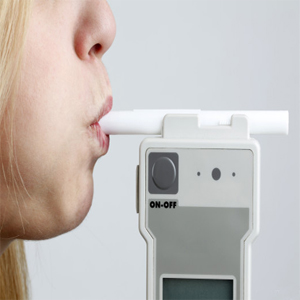Breath Test Can Detect Mesothelioma in Earlier Stages

One of the known challenges of effectively treating mesothelioma is the difficulty in properly diagnosing the rare cancer in its early stages. The long latency period after asbestos exposure coupled with nonspecific symptoms often lead to misdiagnosis until the mesothelioma has become more advanced. Many studies have focused on ways to help effectively detect mesothelioma early, allowing for more treatment options and an improved prognosis.
In recent years, researchers have discovered various biomarkers that can help detect the presence of mesothelioma cells and enable doctors to diagnose the disease sooner. Researchers have also been further investigating gene mutations and fusions linked with mesothelioma that can help detect and better treat the disease.
A study from 2016 has even shown that compounds in a patient’s breath can quite accurately detect the presence of malignant pleural mesothelioma.
In December, the researchers behind the study released their results from an even wider study on breath analysis for mesothelioma, which validated their prior results. Studying a patient’s breath for markers of disease, including various types of cancer, has been an interesting area of research in more recent years.
Analyzing a breath sample is non-invasive, extremely time efficient, and can provide a lot of information regarding a person’s health. Though there are many methods and types of equipment that can be used for such analysis, the researchers at Gent University in Belgium behind these studies relied on multicapillary column-ion mobility spectrometry (MCC/IMS).
The MCC/IMS method has been noted as being able to conduct a full breath analysis in just about 10 minutes. On its own, ion mobility spectrometry is an analytical device that separates and identifies molecules in gas, and has been used for detecting many substances including drugs and explosives, as well as in the medical field with various diseases. The device is very sensitive, and can detect even the slightest trace of a substance.
The MCC/IMS method works by detecting volatile organic compounds in the breath, which can infer someone’s health status. These compounds in the body are mostly blood-borne and act as biomarkers for specific diseases. Detecting certain volatile organic compounds has helped researchers detect various kinds of cancer, like mesothelioma, lung cancer and breast cancer, as well as other diseases.

